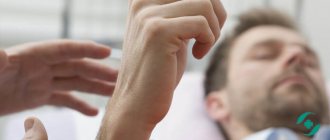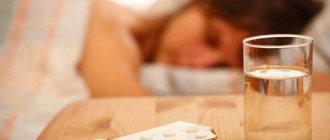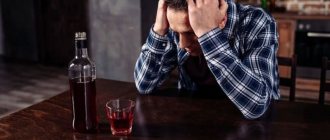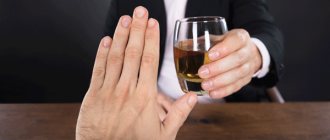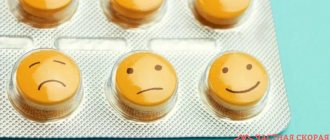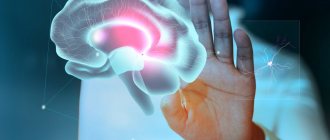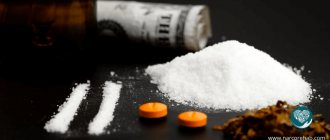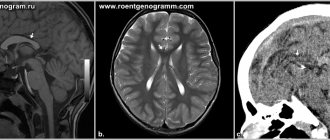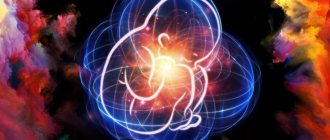Phenazepam is a widely used tranquilizer. The drug is relatively safe and has a wide range of therapeutic effects on the body. Phenazepam is used in neurology, psychiatry and therapeutic practice to relieve conditions associated with anxiety. The medicine is well tolerated by patients and has relatively few side effects. In this regard, patients have questions regarding the combination of Phenazepam with alcohol. The reader will find answers to them in the article.
Summary
- What are the dangers of taking Phenazepam and alcohol at the same time?
- The dangers of taking Phenazepam
- The effect of tranquilizers in combination with ethanol
- Overdose of "Phenazepam"
- Consequences of systematic use
The drug "Phenazepam" belongs to the group of psychotropic drugs. It has a hypnotic, anticonvulsant and anti-anxiety effect, which makes it widely used for the treatment of various mental disorders in adults. It is prescribed to children in extreme cases. "Phenazepam" helps to cope well with psycho-emotional agitation, nervous system overstrain and insomnia. Such symptoms are typical for patients with chronic alcoholism, so a natural question arises about whether Phenazepam and alcohol are compatible.
"Phenazepam" is a fairly strong tranquilizer that is prescribed to patients with various mental disorders. It is sold in pharmacies by prescription. A single dose is half a tablet. It is well known that taking strong tranquilizers and drinking alcohol at the same time is not recommended . However, the use of the drug for the treatment of chronic alcoholism causes confusion among people without medical education. In general, Phenazepam is used to relieve:
- schizophrenia and depression;
- panic attacks;
- manifestations of various phobias;
- excessive excitability;
- sleep dysfunctions;
- irritability.
What is dangerous in combination with ethanol?
The effect of bromodihydrochlorophenylbenzodiazepine (the active ingredient of the drug) on the body in combination with alcoholic beverages is unpredictable. The compatibility of Phenazepam and alcohol has not been thoroughly studied. Ethanol is a strong depressant, so in theory we should expect it to block the effect of the drug. that side effects may increase many times over , as well as the symptoms of the pathology for which the drug is used. Known precedents have led to complications such as:
- prolongation and worsening of the state of intoxication;
- depression of respiratory function until it stops;
- falling into a coma;
- death.
The instructions for use note that the use of the drug is indicated for the relief of withdrawal syndrome of alcohol etiology, as well as alcoholic delirium. However, this does not mean that the simultaneous effect on the body «
Phenazepam
"
and ethyl alcohol are acceptable.
The decision to prescribe a tranquilizer in the appropriate dosage is made by a narcologist who assesses the degree of threat to the patient’s health and life. For example, alcoholic delirium can cause a tragedy if qualified medical care is not provided in a timely manner and drug therapy is not administered. At the same time, the use of "
Phenazepam
"
is permissible only after the complete removal of ethanol from the bloodstream and tissues of internal organs. Detoxification is performed through infusion therapy (intravenous administration of active substances using droppers or injections) under the supervision of a physician.
Self-medication using Phenazepam is extremely dangerous, especially when it comes to binge drinking. An organism exposed to prolonged exposure to ethanol is in a state of nervous and physical exhaustion. If the dosage is calculated incorrectly, the condition will worsen significantly. Phenazepam poses a particular danger when the tissues of internal organs are saturated with ethyl alcohol and toxic products of its breakdown.
Under no circumstances should you give tranquilizers to an intoxicated person in the hope that he will calm down and fall asleep . The consequences of mixing alcohol and Phenazepam may be the opposite of what was expected and cause:
- unmotivated aggression;
- attempted suicide;
- disorientation;
- to whom.
If you need to calm a person while intoxicated, the only correct solution is to call a doctor who has the necessary knowledge and means to provide qualified medical care. To solve the problem of insomnia during a hangover, there are other methods of treatment that are safer for the patient’s health.
The biochemical incompatibility of ethanol and tranquilizers is far from the only reason to refuse joint use. Contraindications to taking Phenazepam include:
- glaucoma;
- depression;
- pregnancy and lactation;
- liver and kidney pathologies;
- old age of the patient.
Effective treatment for alcoholism
Treatment of alcoholism in the full sense of the word is the achievement of freedom from addiction, long-term remission. Such treatment involves drug detoxification of the body, rehabilitation and adaptation to ordinary life - socialization.
Most alcohol addicts do not immediately seek such treatment; in fairness, it is worth saying that their relatives usually call a narcologist when their drinking bouts begin. Therefore, in addition to the full course of treatment, there are also a lot of procedures that help a person with addiction stay afloat: treatment of withdrawal symptoms, withdrawal from binge drinking, coding. These services in narcology are in widespread demand today.
What are the dangers of taking Phenazepam and alcohol at the same time?
Even if Phenazepam tablets and alcohol do not give an immediate negative reaction, then from such a combination with a high degree of probability you can expect in the future:
- development of addiction;
- complex course of withdrawal syndrome;
- deterioration of psycho-emotional state;
- increased nervous excitability.
Tranquilizers themselves can have many different side effects. You should not hope for luck and expect that in your case there will be no complications. The likelihood of such an outcome is extremely low . According to statistics, if a person shows signs of severe depression, then drinking alcohol simultaneously with Phenazepam almost 100% ends in a suicide attempt.
You should not trust members of forums on the Internet who insist on the compatibility of “Phenazepam and alcohol; online reviews do not provide for responsibility for their statements. Perhaps a one-time use of the drug with a relatively small dose of alcohol will do without pronounced negative consequences. However, this does not at all guarantee that repeated, and especially systematic use of such a combination is also safe . The instructions for use clearly state that while taking the medicine you should definitely categorically refuse to drink alcohol, even in symbolic quantities.
You should not ignore the recommendations of pharmacologists and risk your health, if not your life. Almost always, the use of alcoholic beverages and tranquilizers at the same time is characterized by negative consequences that are difficult to predict. The risk is especially great when it comes to people suffering from alcohol addiction. Systematic intoxication with ethyl alcohol causes a number of serious somatic and mental disorders, so the use of potent drugs must be approached with extreme caution, regardless of their purpose. Due to disruption of metabolic processes, the body's reaction may be inadequate. This is especially dangerous when it comes to mental processes that determine human behavior and influence consciousness.
How to recover from addiction?
If a person is addicted to drinking alcohol with Phenazepam, then only comprehensive treatment can help. And the sooner it begins, the fewer irreversible consequences a person’s physical and psychological health will receive. The risk that one day the addict will not calculate the dose and it will be too late to help will also disappear.
Do your loved ones need help treating alcohol addiction? Sign up for a free consultation by calling the AlkoZdrav help center hotline: 8-800-775-32-63 . Specialists will answer your questions, select an effective treatment plan and accompany you throughout the entire program.
We guarantee results if all our recommendations are followed.
The dangers of taking Phenazepam in combination with alcoholic beverages
The potent Phenazepam and alcohol are an unacceptable combination. The presence of ethanol in the body is a clear contraindication for the use of the drug. Despite the unequivocal warning, cases of violation of the rules for using the medicine are still observed, and quite often. As a result, doctors are forced to stop problems caused by patients’ neglect of their own safety, we are talking about:
- Double dependency . "Phenazepam" in combination with alcohol is often used deliberately to enhance the effect of intoxication. As a result, a stable dependence on both ethanol and the drug develops, and the severity of the withdrawal syndrome increases by 2 times.
- Intoxication . The degree of poisoning depends on the doses of alcohol and medicine consumed, as well as the duration of their joint use. As a result of intoxication, the following are observed: clouding of consciousness, increased anxiety, nausea, headaches, visual hallucinations.
- Allergic reactions . The compatibility of Phenazepam and alcohol is also refuted by negative somatic manifestations that cannot be predicted. They are extremely different in nature - from increased blood pressure to swelling of the upper respiratory tract.
- Loss of consciousness . Fainting is a fairly common occurrence when ethyl alcohol and tranquilizer drugs are simultaneously ingested into the body. In especially severe cases, it is possible to fall into a coma with subsequent death if medical assistance is not promptly provided.
- Exacerbation of chronic disorders. If a person suffers from any chronic disease of the internal organs, then with 100% certainty one can expect a deterioration in their health. This is especially true for pathologies of the central nervous system (CNS), heart, kidneys and liver.
One cannot expect a beneficial effect of Phenazepam when combined with alcoholic beverages, despite some positive reviews that can be found on the Internet. If a person suffers from insomnia due to heavy drinking, then it is better to call a doctor, or rather, this is the only right decision. Taking potent tranquilizers without permission is strictly prohibited.
Withdrawal syndrome in alcoholism
The cause of binge drinking is alcohol withdrawal syndrome. This is a complex of pathologies and dysfunctions that appear in an alcoholic when he gives up alcohol. Withdrawal syndrome is not the same as a regular hangover. Such a phenomenon as withdrawal syndrome appears only in the second stage of the disease and continues in the third. This is a number of psychological, somatic, neurological and autonomic disorders:
- Strong headache.
- Gastrointestinal disorders.
- Violations of the body's thermoregulation, chills.
- Cardiac dysfunction, rapid heartbeat, tachycardia.
- Tremor of the limbs.
- Depressed mood, depression.
- Strong desire to drink alcohol.
- Uncoordination of movements.
- Increased sweating.
- Sleep disturbances, insomnia.
Usually the patient is unable to endure these painful symptoms, so he drinks alcohol. That is why withdrawal syndrome requires treatment with medications, otherwise the patient faces binge drinking.
Effect of tranquilizers in combination with ethanol on humans
With an overdose of Phenazepam and alcohol, the consequences can be tragic. Exceeding the dosage of the drug, even without alcohol, is extremely undesirable, and in combination with ethanol it can provoke:
- loss of self-control up to unmotivated aggression or neglect of one’s own safety;
- involuntary urination;
- heart rhythm disturbance;
- visual hallucinations;
- dysfunction of internal organs.
Under the influence of a tranquilizer and ethanol, a person poses a danger to others and himself. He is practically unaware of what is happening around him, so he is capable of committing completely inappropriate and unpredictable actions.
The lethal dose depends on the physical condition, body weight, and the presence of dangerous chronic pathologies. On average, 7 ml when administered intravenously and 10 mg when administered orally is sufficient for death. When combined with alcohol, the lethal dose is reduced . You can take the drug only 5-12 hours after complete sobering up.
Literature:
- Bekker R.A., Bykov Yu.V. Once again about Phenazepam. Psychiatry and psychopharmacology. 2017; 19 (5): 15–24.
- Chekulaev M.I., Maksimova T.V., Barsegyan S.S. The dangers of phenazepam as a street drug. Peoples' Friendship University of Russia. Faculty of Medicine. Department of Pharmaceutical and Toxicological Chemistry.
- A.Yu. Nenastyeva. Phenazepam: on the issue of effectiveness and safety of taking benzodiazepine derivatives. Journal of Neurology and Psychiatry, 12, 2021.
- Tranquilizers are benzodiazepine derivatives in psychiatry and general medicine. Ed. Smulevich A.B. - M.: “Media Sphere”, 1999.
Overdose of Phenazepam due to alcohol intoxication
If Phenazepam tablets and alcohol were taken at the same time, you should urgently seek medical help. Before doctors arrive, you can independently reduce the likelihood of critical intoxication and reduce damage to health. To do this, before the ambulance arrives, you must:
- Rinse the stomach . You need to drink 5-6 glasses of a weak soda solution and induce vomiting. The procedure must be repeated until the person begins to vomit with clean water.
- Take sorbent . Activated carbon absorbs and binds toxins, so in some cases it serves as an alternative to gastric lavage.
- Keep the person conscious . It is necessary by any means to prevent the patient from fainting. If this does happen, the person must be placed on his side so that in case of involuntary emptying of the stomach, the vomit does not block the airways.
Psychological craving for alcohol
The human psyche is always looking for the missing link that will help it experience the greatest thrill from life. In the case of alcohol addiction, this high is chemical. A person prone to alcoholism experiences more pain than joy from contact with reality.
Some experts believe that the issue is a congenital defect in the biochemical processes of the body of the future drug addict. Such a person is already born with disturbances in the production of a certain type of natural neurostimulants. Therefore, he experiences less joy, satisfaction, and desire to act actively than people whose production of these compounds is normal.
In addition, there are various complexes, fears, attitudes that prevent a person from building normal productive and happy relationships with the world, with people. Some of them are related to character traits, others to upbringing. Many of our parents’ attitudes are harmful and limiting beliefs, because our parents and grandparents had a hard time. And now their experience becomes a heavy burden for us, which prevents us from developing in new conditions.
Result: failures, loneliness, lack of joy in life. In fact, such a person lacks the same natural stimulants: adrenaline, endorphins, serotonin, as the first type of people, whose biochemistry is disturbed from birth. The result is a stable psychological attraction to alcohol.
Consequences of systematically taking tranquilizers with alcohol
Some alcohol and drug addicts consciously take Phenazepam and alcohol; reviews of subsequent sensations are rare, but can still be found on the Internet. We strongly do not recommend engaging in such experiments. Tranquilizers with ethanol are already dangerous enough chemical compounds to make jokes with them once again, and their simultaneous use can be called voluntary insanity . Unfortunately, this doesn't stop some people. Partly because they don't know or don't want to know the possible consequences:
- accelerated physical, mental and moral degradation;
- unconscious inappropriate behavior;
- loss of self-preservation instinct;
- visual and auditory hallucinations;
- ultimately failure of internal organs, disability, painful premature death;
“Phenazepam” is excreted more slowly than ethanol, so drinking alcohol is permissible not after 5-12 hours, but after 2 days.
Various tranquilizers, including benzodiazepines, are indeed used in the process of drug therapy for chronic alcoholism. However, there is a huge difference between prescribing a drug, as well as treatment under the supervision of a doctor and self-medication. Narcologists use Phenazepam as a sedative only after the body has been detoxified from ethanol and its breakdown products. Diffusion therapy using droppers helps to carry out high-quality cleaning of the tissues of internal organs from ethanol.
Complete cleansing requires from 3-4 hours to several days, depending on the severity of intoxication and the period of continuous consumption of alcoholic beverages in significant quantities. Detoxification is performed at home or in a hospital, but always under the supervision of a narcologist. He must make sure that ethanol and the toxic products of its catabolism are eliminated, and only then implement the developed strategy for treatment and elimination of the consequences of long-term binge drinking. Even doctors use Phenazepam in extreme cases. If the patient’s condition is not assessed as serious, then narcologists use milder and safer sedative medications.
Treatment of withdrawal symptoms
Treatment of withdrawal syndrome in alcoholism can be carried out in a specialized clinic and at home. Limitations on the provision of care at home include a complicated medical history and the critical condition of the patient. Otherwise, everyone decides for themselves what is more convenient and profitable for them; any option has its advantages:
- A familiar home environment is more psychologically comfortable for the patient.
- Relatives are able to carefully take care of the needs of the alcoholic.
- When treated at home, you save on hospital stays.
- Treatment and diagnostic hardware is available at the clinic.
- Constant medical supervision makes it possible to urgently provide the necessary assistance.
- There is no access to alcohol in the clinic
Physical craving for alcohol
With constant use, ethyl alcohol has an active effect on the body and is included in its subtle biochemical processes. It replaces natural compounds that are normally produced by the body. Now they enter him effortlessly and in large doses. Naturally, natural compounds stop being produced because there is no need for it.
This is how a person acquires a physical craving for alcohol. When the patient’s body does not receive the next dose, it turns out that the body is left without the biochemical elements necessary to ensure life. At this moment, a person feels pain, functional physiological disorders, psychological discomfort, that is, he begins to experience alcohol withdrawal syndrome, also known as alcohol withdrawal syndrome, which requires treatment.
